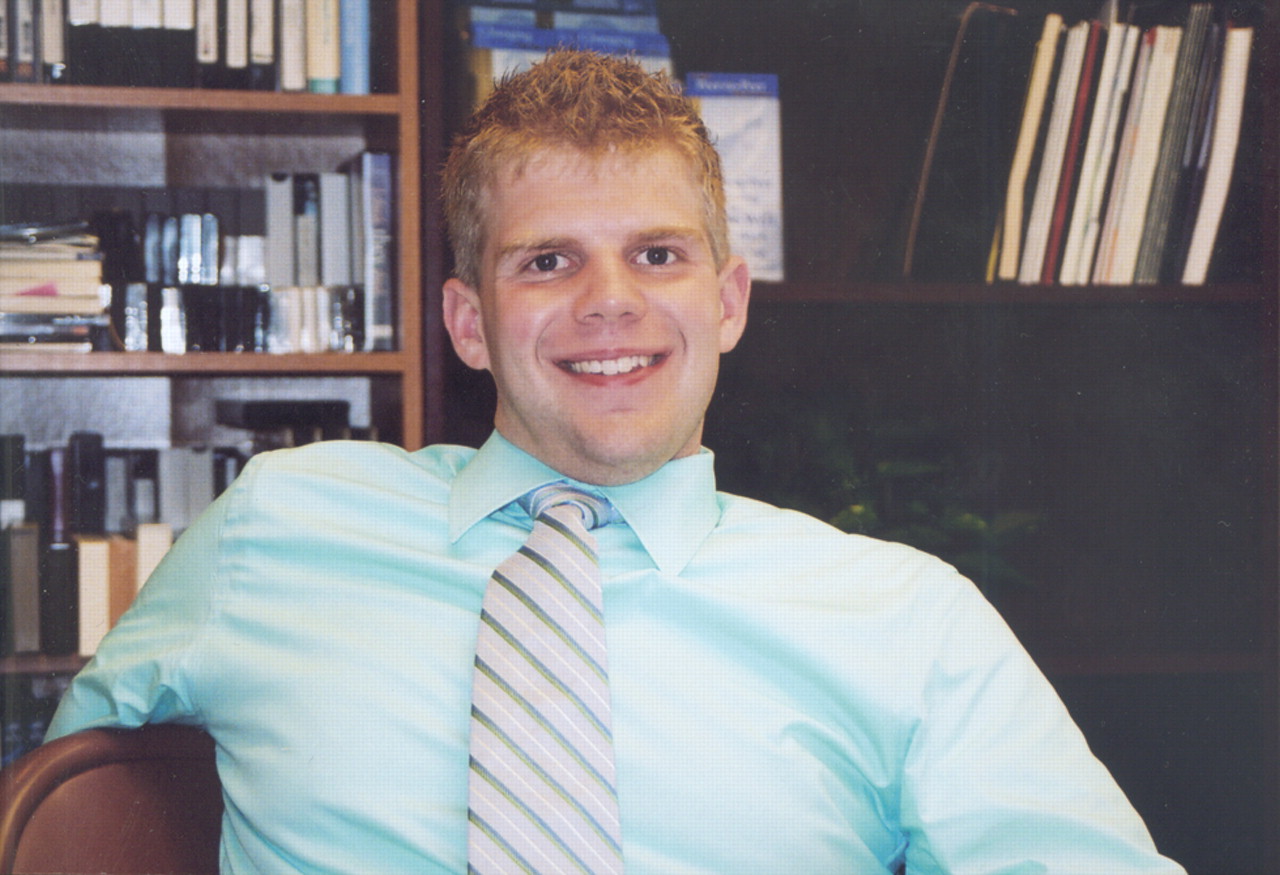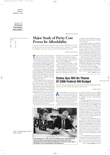University of Illinois student Jim Monti is not about to let still-painful memories of severe depression recede into the past. Though it's been about eight months since he was “bombarded by darkness” and struggled daily for his life, he will not let himself forget what he went through anytime soon.
“I want to use my experiences to motivate others to get where I am today—to get better,” he told Psychiatric News.
To raise awareness of mental health issues and provide support to students with mental illness on the University of Illinois at Urbana-Champaign (UIUC) campus. Monti established a campus affiliate of the National Alliance for the Mentally Ill (NAMI) in late 2004. It is one of 23 campus affiliates across the United States. Monti is president of the UIUC campus affiliate, which he established with the help of NAMI-Champaign County.
“For many of us, NAMI on campus is a first step to a successful recovery,” he said.
There are 24 student members, most of whom have a mental illness. The group meets weekly to discuss topics such as medication or social support, Monti said, and holds fundraisers to support the organization. “It's a peer-support group in part,” he noted.
NAMI UIUC also hosts speakers to talk to UIUC students about mental health–related topics.
Monti believes the presence of a mental health organization on campus is“ crucial” since mental illness has been estimated to affect about a quarter of all college students in the country. Further, he pointed out,“ suicide is the second leading killer of college students, after car accidents.”
Ominous Feelings Descend
For most of his life, Monti said he experienced obsessive thoughts and anxiety and worried that he was dying of a fatal disease. It was not until he was halfway through his sophomore year of college that he became convinced that he had a mental illness.
“I'd be laughing with friends about something and then stop and think to myself, `You can't be laughing because you're about to die,'” he said. He describes himself at that time as “alive, but not really.”
At the beginning of his junior year in 2004, Monti recalled an ominous feeling descending upon him as he made the two-hour drive from his family's home in Chicago to school. Somehow, he said, the campus he once loved had become a horrible place, and he spent his days feeling “miserable and scared,” he said.
In November of that year, Monti began seeing a psychiatrist who diagnosed him with bipolar II disorder. He began taking a mood stabilizer and noticed that he felt better, but the respite was short-lived.
Just weeks later, during his winter break, a combination of stressors contributed to a depression unlike any he had known before, and thoughts of suicide began to creep into his mind.
“It was as if my illness had reached a new level,” he said.“ Each night I'd go to bed praying the next day would not be horrible.”
To combat his depressive symptoms, his psychiatrist prescribed an antidepressant that winter. During the four to six weeks that it took to take effect, Monti wondered if he would survive.
Worried about his condition, family members began to call him each evening. Their support made all the difference to him at this time, he said, because he knew he couldn't “make it alone.”
Monti also lost his appetite. After a couple of weeks of being unable to bring himself to eat, he tested the limits of his appetite problem. “I found a Ben and Jerry's ice cream stand. I figured anyone can eat Ben and Jerry's—but I couldn't.”
Treatment Worked
Soon thereafter, his psychiatrist prescribed lithium, which took exactly 25 hours and 37 minutes to work, according to Monti.
“I was staring at my computer, facing southwest in my apartment, and I just felt normal,” he recalled. “I felt as if a black veil had been lifted from my head.”
After he began taking lithium, Monti said, “the playing field was leveled, and it was finally my turn to put up a fight against this illness.”
For instance, he began to confront “irrational thinking patterns” in therapy, which he called the “rehab of mental illness.” He observed that “antidepressants will not make us happy; they will keep us from being depressed.” The rest is hard work, he said.
Monti continued to rely on the support of family and friends and posted motivational signs on the walls of his apartment. One read, “Bipolar disorder picked the wrong person.”
Monti recently completed a summer internship at NAMI headquarters in Arlington, Va., where he worked on the organization's campus affiliate initiative. He is now a senior and plans to recruit students to carry on his work at NAMI UIUC.
“It is our job to ensure that students with mental illness get the support and help they need,” he noted. “I truly believe that with this campus initiative, we can do that.”
Information about NAMI's campus affiliate program is posted at<www.nami.org/Content/NavigationMenu/Find_Support/NAMI_on_Campus1/NAMI_on_Campus-New.htm>.▪

